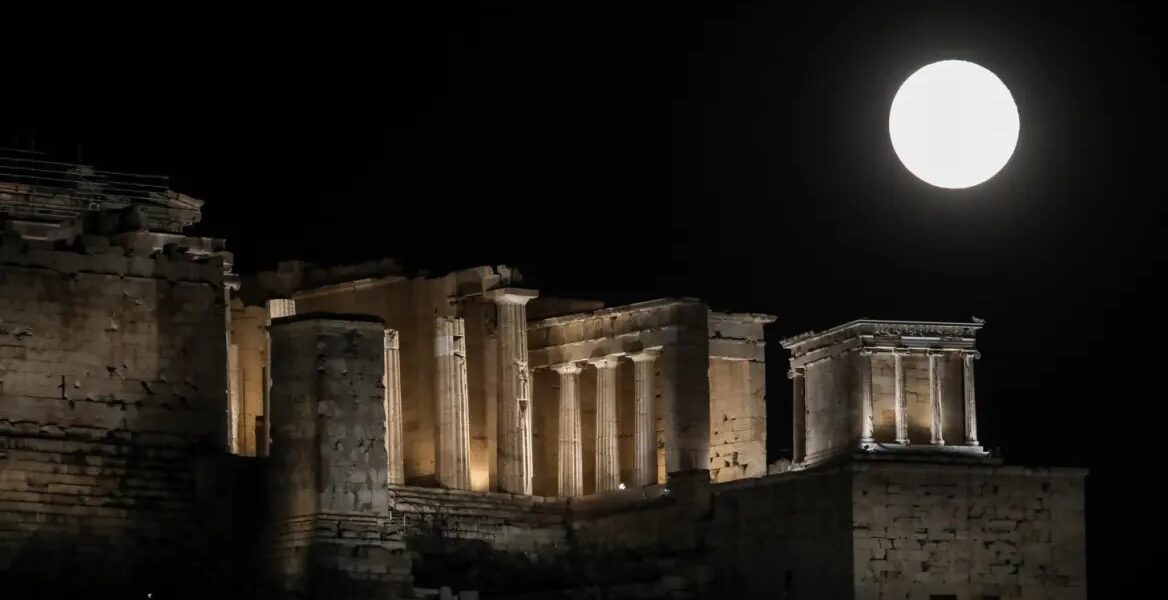August 2023 will have two super full moons today and on the 31st of the month.
Today's full moon is named "Sturgeon Full Moon" in honour of the Native Americans who fished for sturgeon in large quantities in North American lakes in August. Its unique feature is that it is also a full moon, the second of the four in the summer of 2023.
As Fiori-Anastasia Metallinou, an astrophysicist at the Thision Visitor Center of the National Observatory of Athens, explains to AMNA, the super full moon occurs when the Moon is in the phase of the full moon and is very close to perigee, i.e. its nearest point to Earth.
It looks more extensive and more impressive, especially for experienced Moon watchers. Ms Metallinou urges people to observe the Moon with the naked eye as soon as it rises and is low on the horizon "because then it gives us the feeling that it is bigger."
It is noted that the super full moon of Oxyrhynchus will rise at 8.53 pm in Athens.
This year's August offers us a second full moon, and this one a super full moon, on August 31. As it will be the second full moon in the same month, it is also called a " Blue Moon ".
It is characteristic that we had a super full moon and a blue moon at the same time again in December 2009, and the next time will happen in nine years, in August 2032. The super full moon of the Blue Moon will rise in Athens at 8.31 pm.
Between the two full moons, there will be the new Moon on August 16th, which will also have something special: a new micro-Moon; that is, the new Moon will occur near its farthest point from Earth, the apogee.
It is noted that the first super full moon of 2023 was on July 3, and the last super full moon is expected on September 29.
Archaelogical sites, museums and other monuments throughout the country will be open on the first night and last night of August for visitors to enjoy the two full moons of August.
Admission to the sites will be free of charge on these nights and the Culture Ministry has organised, as it does every year, numerous events on Tuesday, August 1 and on Wednesday and Thursday, August 30-31, at 50 archaeological sites, museums and monuments.
The events include concerts, theatre, opera, art exhibitions and astronomical observation. An additional 50 archaeological sites, museums and monuments will be open for all visitors with no admission charged from 20:00-24:00.
READ MORE: Over 1,400 fires across Greece in July alone.

